Books
Books
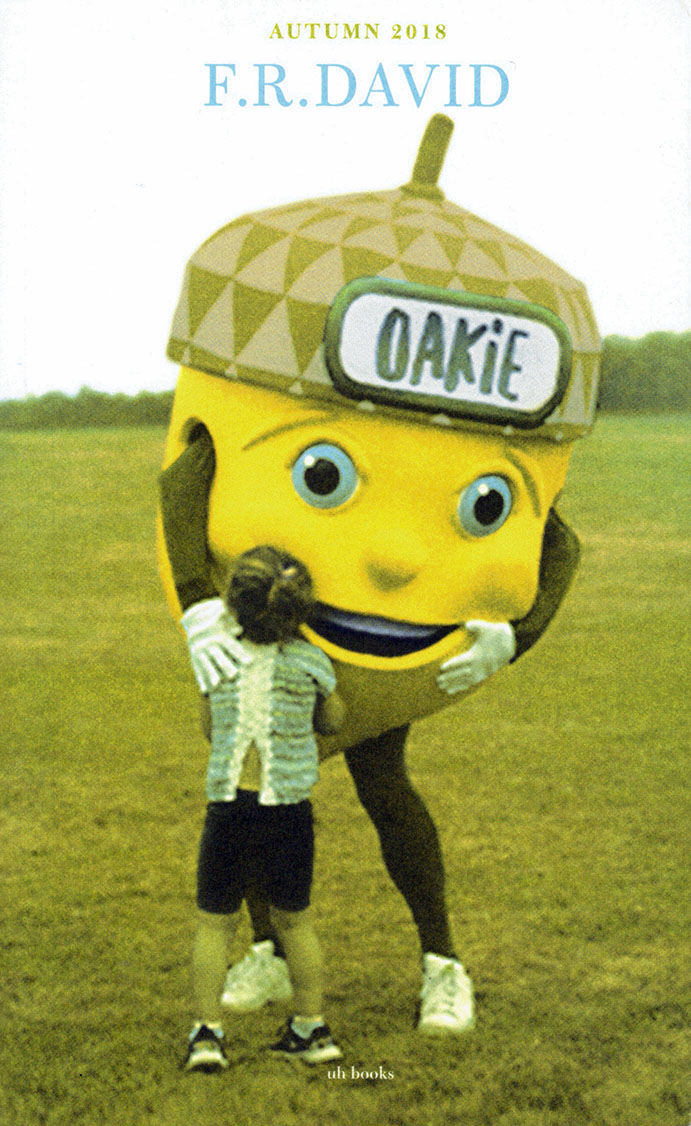
F.R. David - what I mean is—
F.R.DAVID is a typographical journal, dealing with the organisation of reading and writing in contemporary art practises. “what I mean is—” the 16th issue, edited by Will Holder.
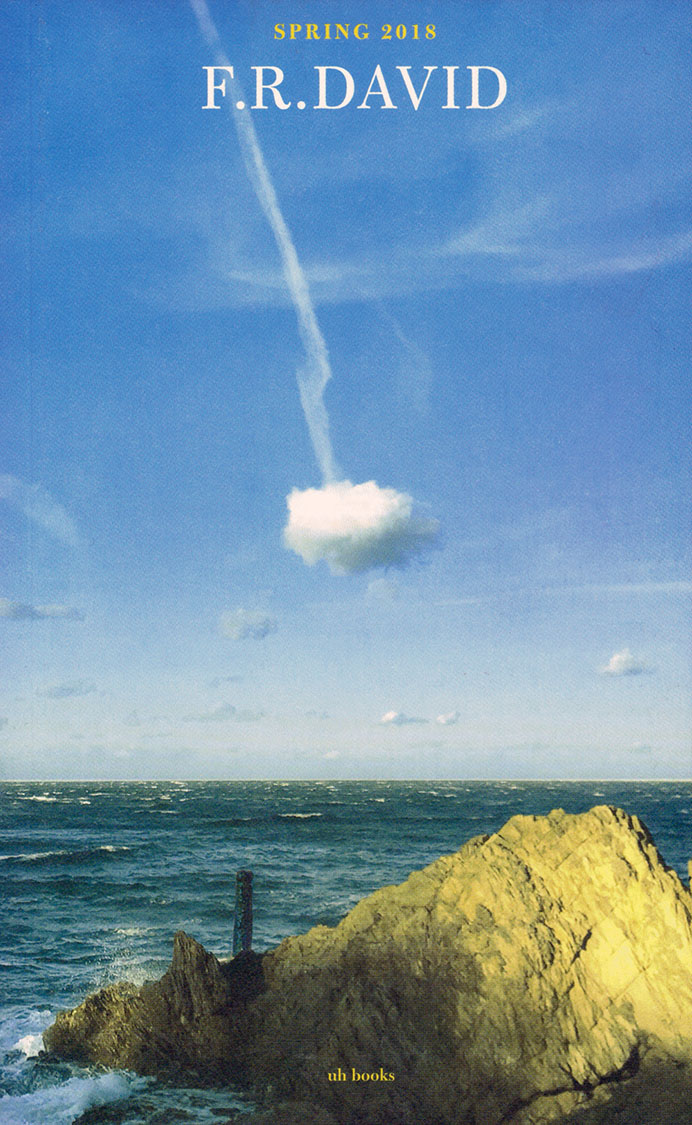
F.R. David - Flurry
F.R.DAVID is a typographical journal, dealing with the organisation of reading and writing in contemporary art practises. “Flurry” is the 15th issue (a best-of, of sorts) edited by Will Holder. “I realized very slowly over a period of time that the activity of framing a performance and the intentions that accumulate around that activity produce a certain anxious kind of mode, and I became bothered by the flurry of activity and how it tends to mask so many things.”
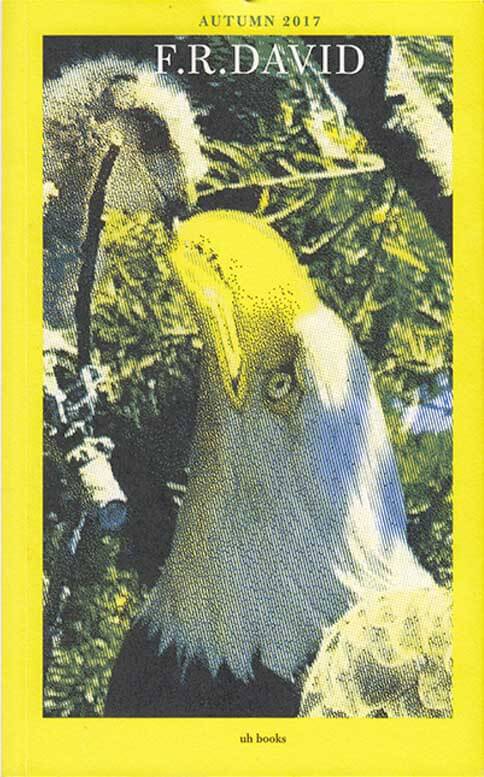
F.R. David - Recognition
“Recognition” is concerned with bodies, ecology, empathy, gazing at the world, and reading (environments) from non-anthropocentric POVs—nonetheless described and written by humans. Animals, birds, and trees feature heavily.
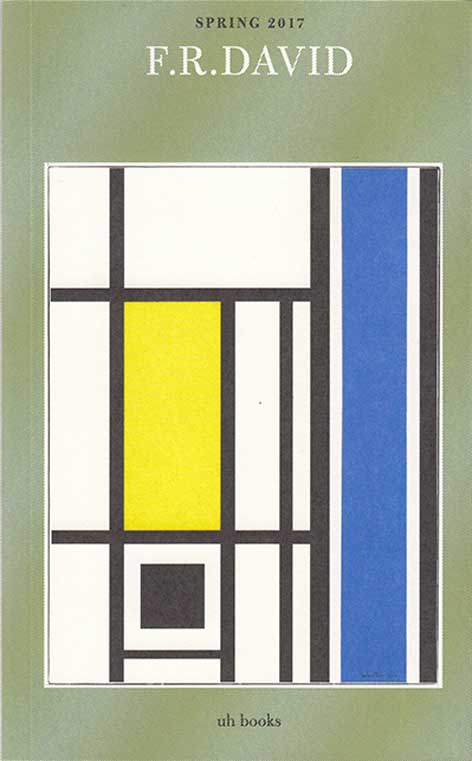
F.R. David - Inverted Commas
F.R.DAVID is a typographical journal, edited by Will Holder, dealing with the organisation of reading and writing in contemporary art practises. This 13th issue of F.R.DAVID is edited with Riet Wijnen, and has its origins in her Registry of Pseudonyms, an online database which accounts for who is who and why who is who. ‘Inverted Commas’ follows ‘pseudonym’ through names, naming, bodies, brains, self, author, other, reader, labour.
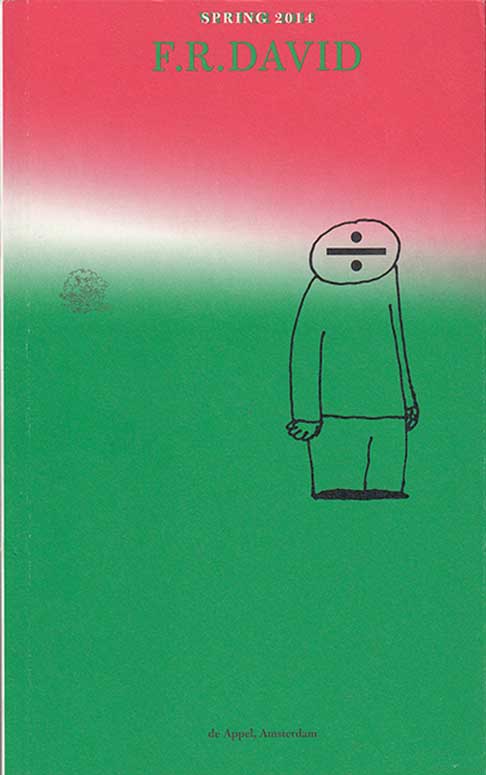
F.R. David - All distinctions are mind, by mind, of mind
F.R.DAVID is a typographical journal, dealing with the organisation of reading and writing in contemporary art practises.
This issue, “All distinctions are mind, by mind, of mind”, has a split personality, allowing comparative readings between left/ right, good/ bad, manic/ depressive.
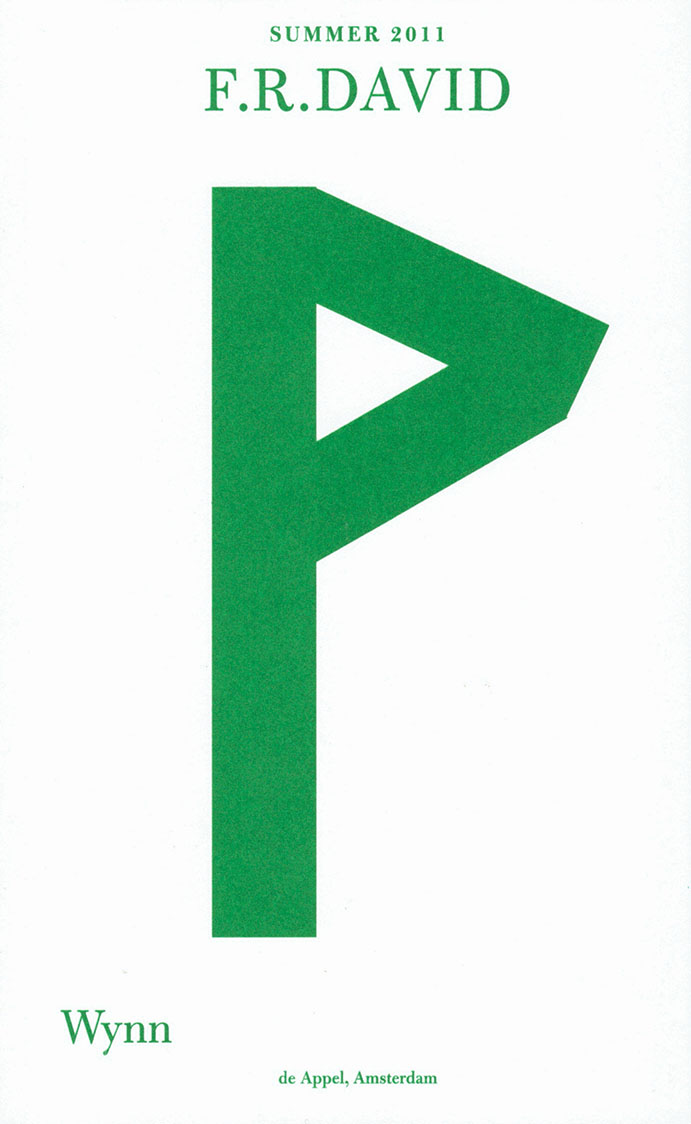
F.R. David - Spin Cycle
F.R.DAVID is a typographical journal, dealing with the organisation of reading and writing in contemporary art practises.
This issue, "Spin Cycle", is concerned with captioning, commentary and description. Edited with Mike Sperlinger.
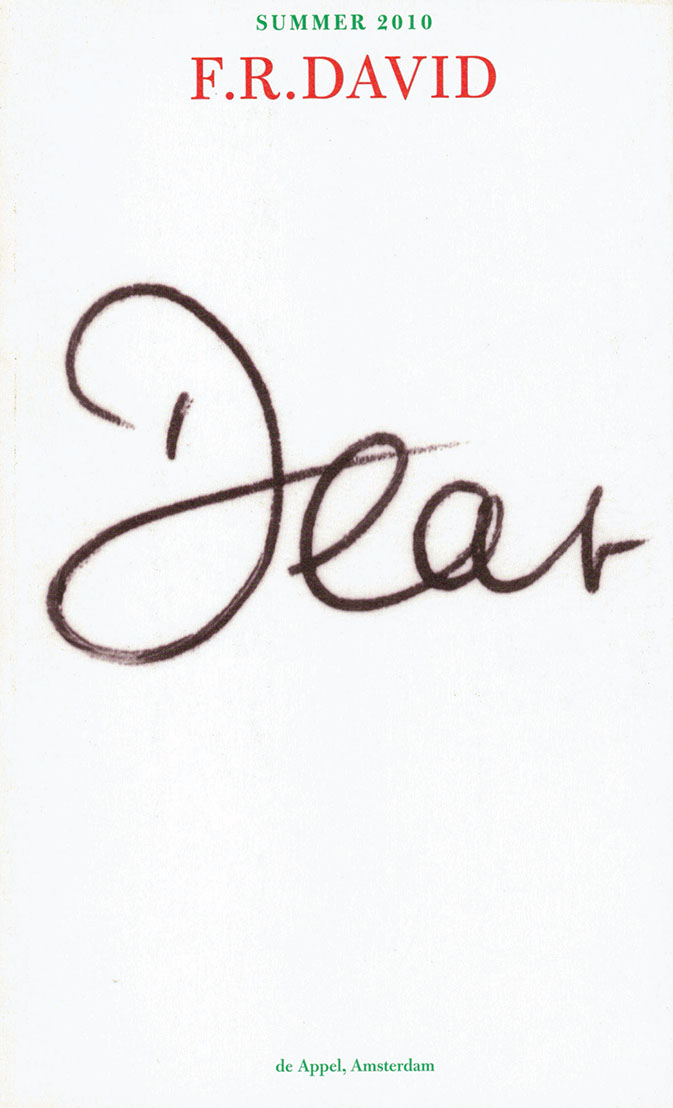
F.R. David - With Love
F.R.DAVID is a typographical journal, dealing with the organisation of reading and writing in contemporary art practises.
“With Love,” takes correspondence and calligraphy—or letter-writing—as model for information theory, and adaptive, cybernetic relations.
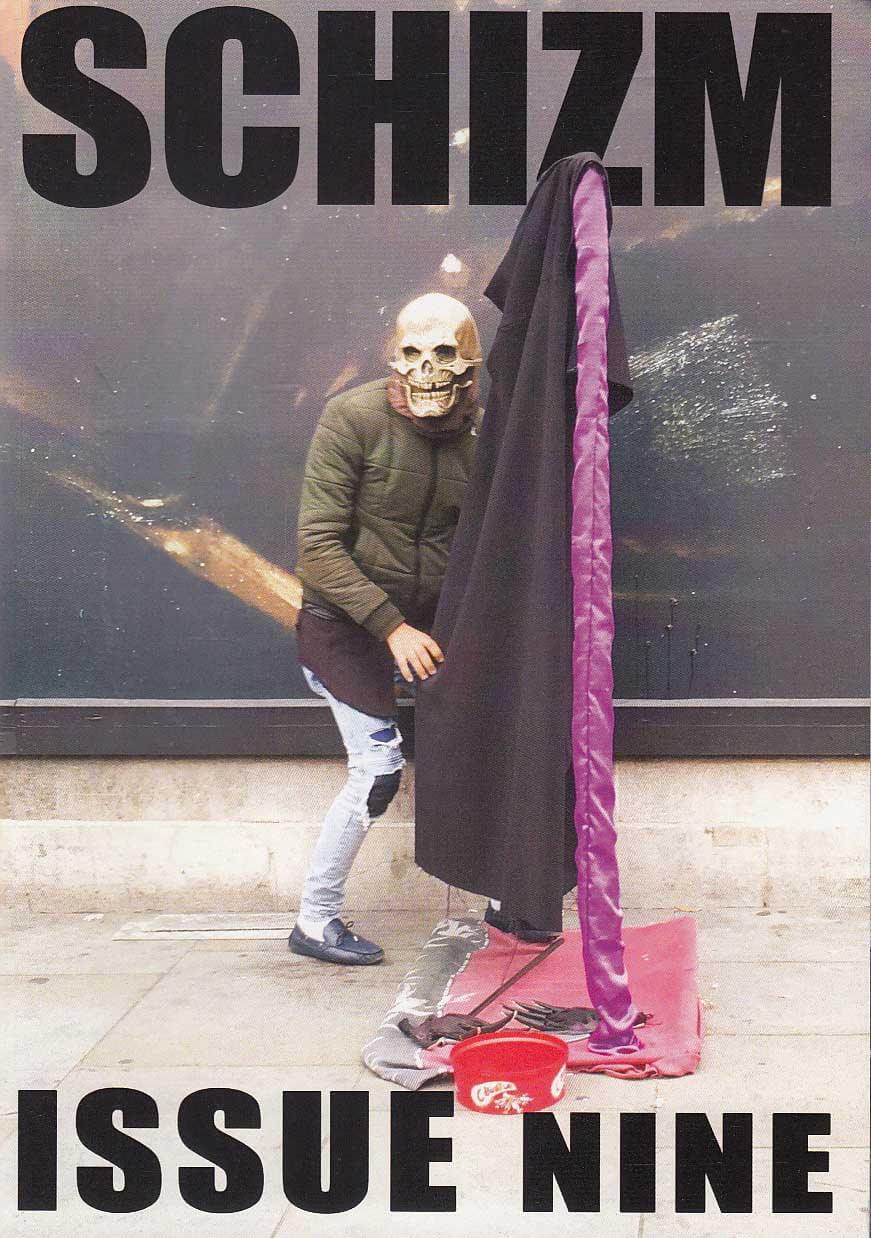
#9 Schizm Magazine
DUPLICITY (Polarisation & Truthiness) CONTRIBUTORS: Naomi Afrassiabi, Bob Ajar, Noah Angell, Sam Basu, Simona Brinkmann, Arnaud Desjardin, John Chilver, Luke Dowd, Patrick Goddard, Kathi Hofer, Catherine Hughes, Nik Jaffe, Tibor Kuo, Agata Madejska, Benja Sachau & Fiona Sarison.
Schizm Magazine invites contemporary artists and writers to contribute pages in response to a theme which, as the title implies, engages with a paradoxical idea. Each issue combines archival material with original works and texts sent in by between ten to thirty contributors.
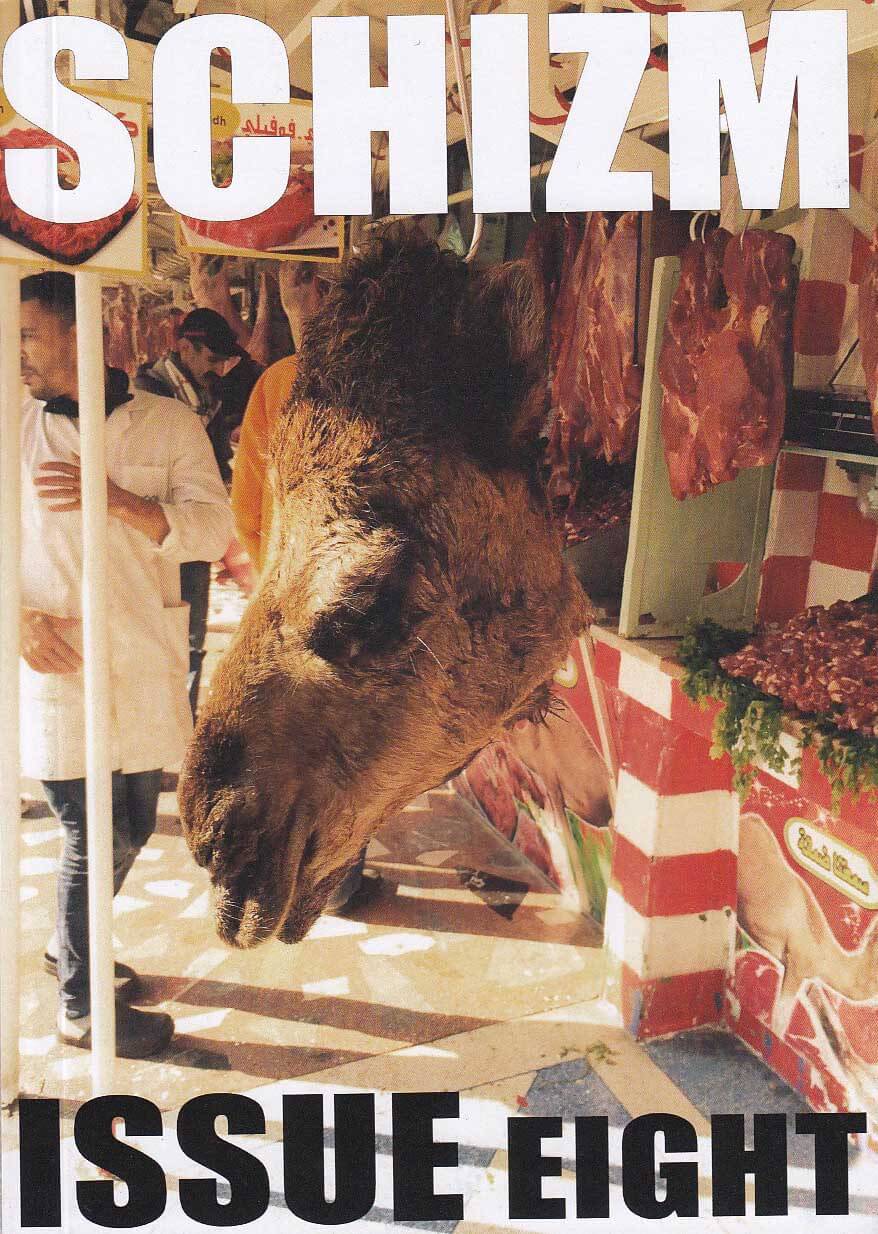
#8 Schizm Magazine
SKEPTICAL UNCERTAINTIES (false truths & honest lies)
Contributions by Bob Ajar, Pedro Diego Alvarado, Aureliano Alvarado, Sam Basu, Manuela Barczewski, Iphgenia Baal, John Chilver, Paul Philipp Heinze, Thomas Helbig, Jaakko Juhani Karhunen, Paul Johnson, George Macbeth, Christoph Meier, Sascha Mikloweit, Mocellin Pellegrini, Pages, Tomas Rydin, Adam Rompel, Fiona Sarison, Barry Sykes, Eleanor Vonne Brown, Markus Vater. Schizm Magazine invites contemporary artists and writers to contribute pages in response to a theme which, as the title implies, engages with a paradoxical idea. Each issue combines archival material with original works and texts sent in by between ten to thirty contributors.

#7 Schizm Magazine
UPWARDLY/DOWNWARDS.
Contributions by Bob Ajar (NY), Jessica Bard (NY), Sam Basu (FR), Paul Birbil (NY), David Burrows (LND), John Chilver (LND), Lisa Conrad (CA), Nina Katchadourian (NY), James Chance (MEX), Jon Kinzel (NY), Roy Kortick (NY), Emily Kuenstler (CA), Cedar Lewisohn (LND), Drea Marks (MA), Francesca Mannoni (NY), & Elizabeth Tisdale (NY).
Schizm Magazine invites contemporary artists and writers to contribute pages in response to a theme which, as the title implies, engages with a paradoxical idea. Each issue combines archival material with original works and texts sent in by between ten to thirty contributors.

#6 Schizm Magazine
ACCESS/EXCESS (coercion, proliferation & mutation)
Contributions by Bob Ajar, Maziar Afrassiabi, Sam Basu, Matt Calderwood, John Chilver, Rhys Coren, Patrick Coyle, Arnaud Desjardin, Catherine Hughes, Thomas Lock, Paul McDevitt, Sean Parfitt, Cornelius Quabeck, Chico Stockwell and Katarina Zdjelar.
Schizm Magazine invites contemporary artists and writers to contribute pages in response to a theme which, as the title implies, engages with a paradoxical idea. Each issue combines archival material with original works and texts sent in by between ten to thirty contributors.
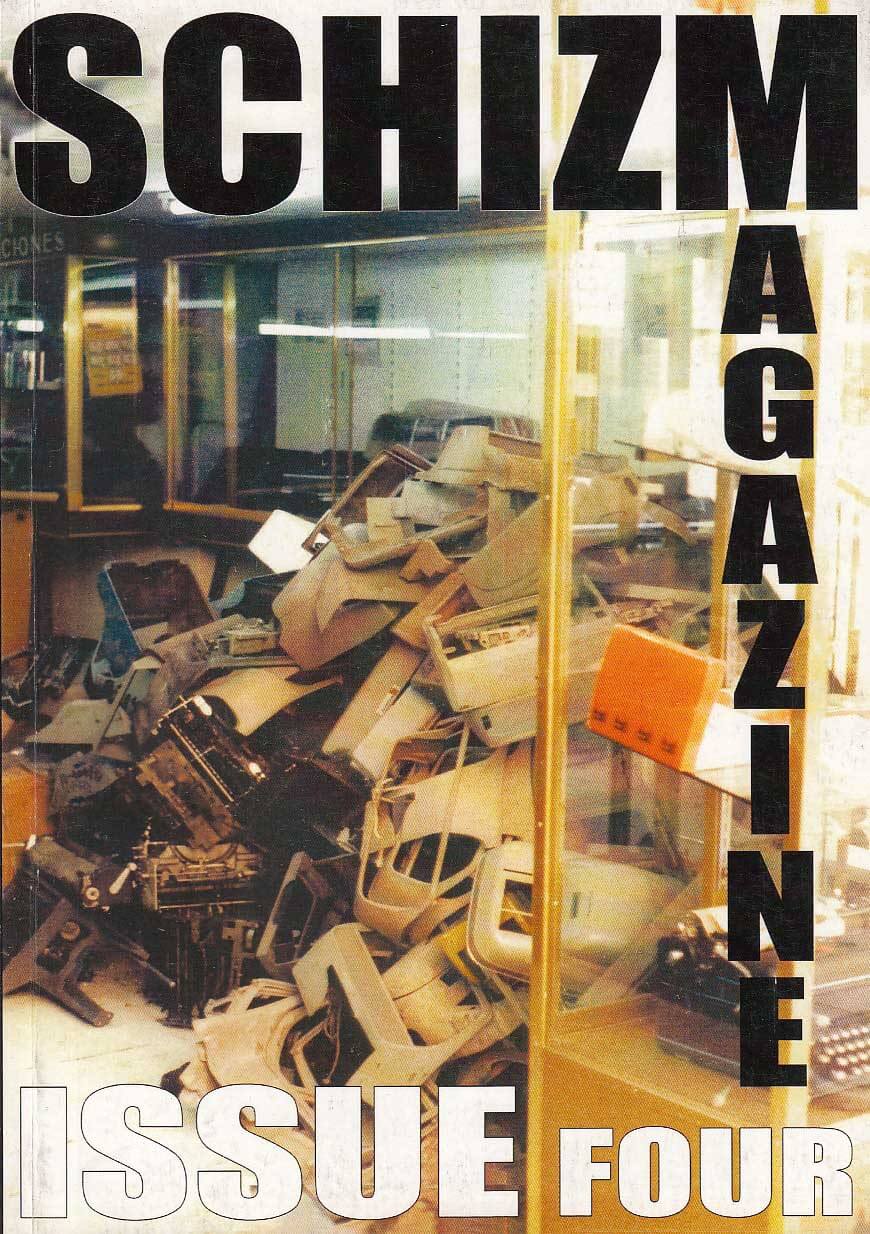
#4 Schizm Magazine
NOW (obsolescence, regeneration & criticality)
CONTRIBUTORS: Bob Ajar, Shahin Afrassiabi, Michael Andreae, Noah Angell, Caline Aoun, Mike Ballard, Sam Basu, Manuela Barczewski, Paul Buck, John Chilver, Ami Clarke, Craig Cooper, Alexandre Da Cunha, Doyle and Mallinson, Alasdair Duncan, Deborah Farnault, Charles Gute, Michael Hampton, Friederike Hamann, Ed Jones, Dean Kenning, Sara Knowland, Cedar Lewisohn, Leonard Manasseh, Alastair Mackinven, Sascha Mikloweit, Anne Redmond, Giorgio Sadotti and Stephen Setford.
Schizm Magazine invites contemporary artists and writers to contribute pages in response to a theme which, as the title implies, engages with a paradoxical idea. Each issue combines archival material with original works and texts sent in by between ten to thirty contributors.

The Straight Mind
A collection of political, philosophical, and literary essays from the acclaimed novelist and French feminist writer Monique Wittig. Monique Wittig's first collection of essays centering on women's struggle for liberation from sexism and classism. These nine essays comprise a thoughtful and unique approach to the study of historical materialism and dialectics, and transverse philosophical, political, and literary theory.
Monique Wittig describes this collection as a focus on "lesbian materialism," in which she examines men and women as distinct classes rather than as "essentialist" categories. "Lesbians are not women," writes Monique Wittig, and she presents powerful ideas about how the idea of "woman" is socially constructed and used to convey certain images. It is not enough, she argues, to transform economic oppression because not all oppression is, at the source, economic.
Sexism will continue to exist even in a society where all people have equal economic opportunities. Only by transforming our thought processes, and in turn, our language, can we transform our society into one in which there is no longer the dominant and the dominated: "In other words, this means there cannot any longer be women and men, and that as classes and categories of thought or language they have to disappear, politically, economically, ideologically." Controversial and abstract, these are essays that challenge and provoke on both intellectual and emotional levels.
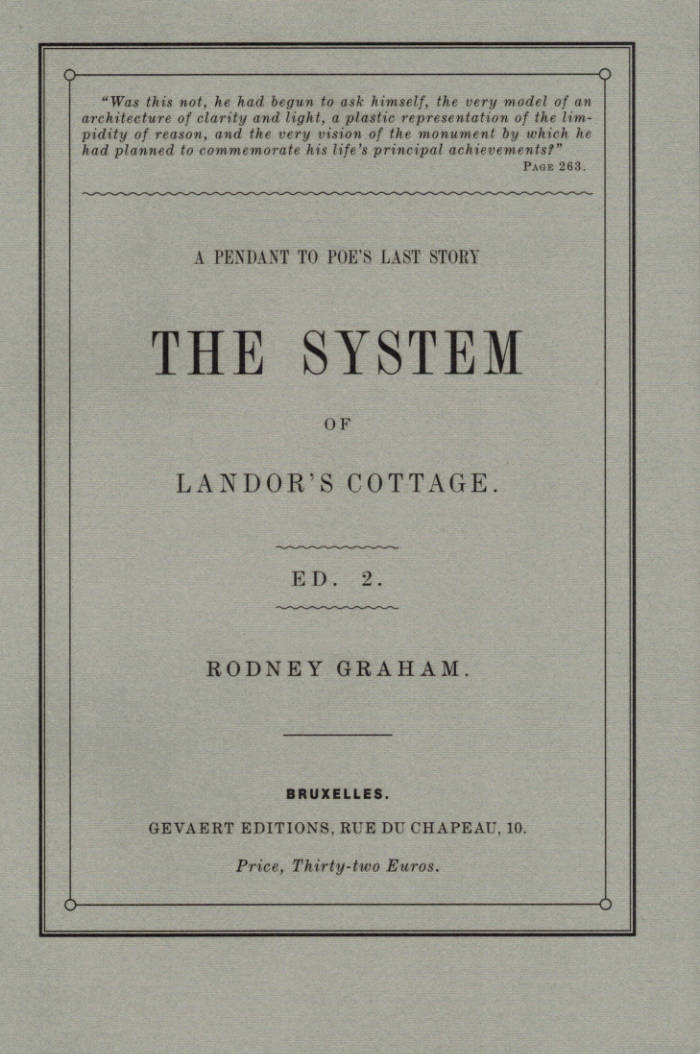
The System of Landor's Cottage. A Pendant to Poe's Last Story
Rodney Graham's The System of Landor's Cottage: A Pendant to Poe's Last Story is the most ambitious of the textual interventions that contributed to Graham's emergence onto the international art scene in the 1980s.
Part 'pataphysical investigation, part Roussellian exercise, the text begins with Edgar Allan Poe's short story "Landor's Cottage: A Pendant to 'The Domain of Arnheim,'" which describes a waylaid traveller's encounter with an uncannily pristine landscape and cabin in the Hudson River Valley. Into this short tale, which numbers less than twenty pages in most editions, Graham inserts an entire novel centered around an annex to Poe's original structure that houses a fantastical machine.
Through a complex set of nested tales, the origins of the machine become clearer but no less magical, and readers will be held rapt by accounts of architectural wonders, a mysterious cipher, and the romance of impossible science.

A Generous Spirit: Selected Work by Beth Brant
Sinister Wisdom and Inanna Publications & Education Inc. are proud to present a new volume of the work of Native American writer Beth Brant, edited by Janice Gould.
A Generous Spirit: Selected Work by Beth Brant collects the writing of Beth Brant, Mohawk lesbian poet, essayist and activist. During her life, Brant’s work gave voice to an often unacknowledged Two-Spirit identity, and today, her words represent continued strength, growth, and connection in the face of deep suffering.
A Generous Spirit is Brant’s portrait of survival and empathy at the intersection of Native American and lesbian experience. A Generous Spirit recounts and enacts the continuance of her people and her sisters with distinct, organic voices and Brant’s characteristic warmth. Her work is a simultaneous cry of grief and celebration of human compassion and connection in its shared experience. Through storytelling, her characters wrest their own voices from years of silence and find communion with other souls.
With a substantial introduction by Janice Gould situating Brant in a broader political and literary context, a foreword by acclaimed Canadian poet Lee Maracle, and a moving afterword by scholar and poet Deborah Miranda, A Generous Spirit is a tribute to the influence of Brant on a generation of Indigenous writers.

Be Here Now

My Emily Dickinson

Vampyroteuthis Infernalis
Flusser introduces an infernal creature from the oceanic abysses, who slowly emerges, not from the oceans, but from man's own depths to gaze spitefully into his eyes and reflect back at his own existence.
Originally published only in German in 1987, this version has been edited and translated by Rodrigo Maltez Novaes, Ph.D. candidate at the European Graduate School, Saas-Fee, under the supervision of Prof. Dr. Siegfried Zielinski, from the original, unpublished and extended Brazilian-Portuguese version of the manuscript recently found at the Vilém Flusser Archive at the Universität der Kunst, Berlin. This edition is also accompanied by a selection of previously unpublished excerpts from Flusser's correspondence with Milton Vargas and Dora Ferreira da Silva, with whom he discussed the development of the present text.

Cyberpositive
0(rphan)d(rift>)'s Cyberpositive is an experimental sci fi theory-fiction that streams a group of asked and unasked contributors writing, sampled and edited by 0D's Maggie Roberts. It was published in 1995 with support from Nick Land and Cabinet Editions, serving as a manifesto and as the catalogue for the debut exhibition of the same name. It came together in the spirit of much of 0D's visual work, bringing together processes of sampling and looping as well as the Burroughs text cut up technique, referring to a breakdown and reordering of language from a post human POV.

What's the Use?
In What’s the Use? Sara Ahmed continues the work she began in The Promise of Happiness and Willful Subjects by taking up a single word—in this case, use—and following it around. She shows how use became associated with life and strength in nineteenth-century biological and social thought and considers how utilitarianism offered a set of educational techniques for shaping individuals by directing them toward useful ends.
Ahmed also explores how spaces become restricted to some uses and users, with specific reference to universities. She notes, however, the potential for queer use: how things can be used in ways that were not intended or by those for whom they were not intended. Ahmed posits queer use as a way of reanimating the project of diversity work as the ordinary and painstaking task of opening up institutions to those who have historically been excluded.
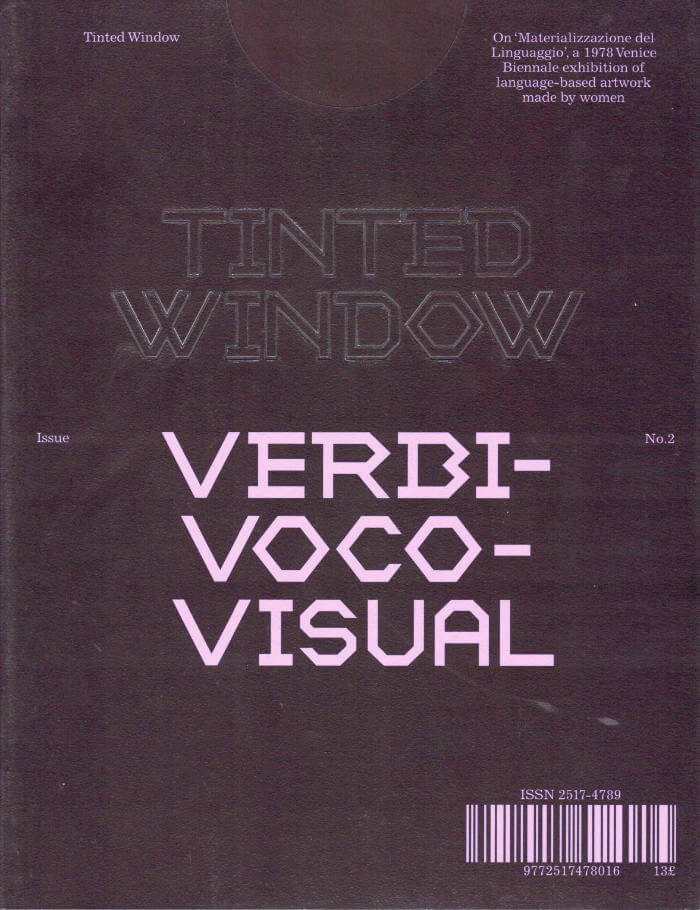
Tinted Window #2 : Verbivocovisual
This issue is dedicated to 'Materializzazione del Linguaggio', a 1978 Venice Biennale exhibition curated by Mirella Bentivoglio. The exhibition comprised of work by over eighty women artists working in a huge range of media, but united in their interrogation of text, voice and language. After the smashing hit of their Hervé Guibert No.1 issue, Tinted Window continues its focus on a single subject with issue No.2: Verbivocovisual. In No.2, Tinted Window brings much of this work back to the fore where many artists have slipped into the footnotes of an exciting period in art history. But much beyond our focus on this iconic exhibition, the issue features new essays and art projects by some of the best artists working with text, voice and poetry today.
No.2 features new commissions, translations and reprints from: Holly Antrum, Jeremy Atherton Lin, Mirella Bentivoglio, Angela Bianchini, Daniela Cascella, Anne Carson, Paula Claire, Paul Clinton, William Cobbing, Constance DeJong, Karen Di Franco, Sholto Dobie, Gustavo Grandal Montero, Katalin Ladik, Daisy Lafarge, Rosanna Mclaughlin, Silvia Mejía, Hannah Regal, Giovanna Sandri and Sue Tompkins.
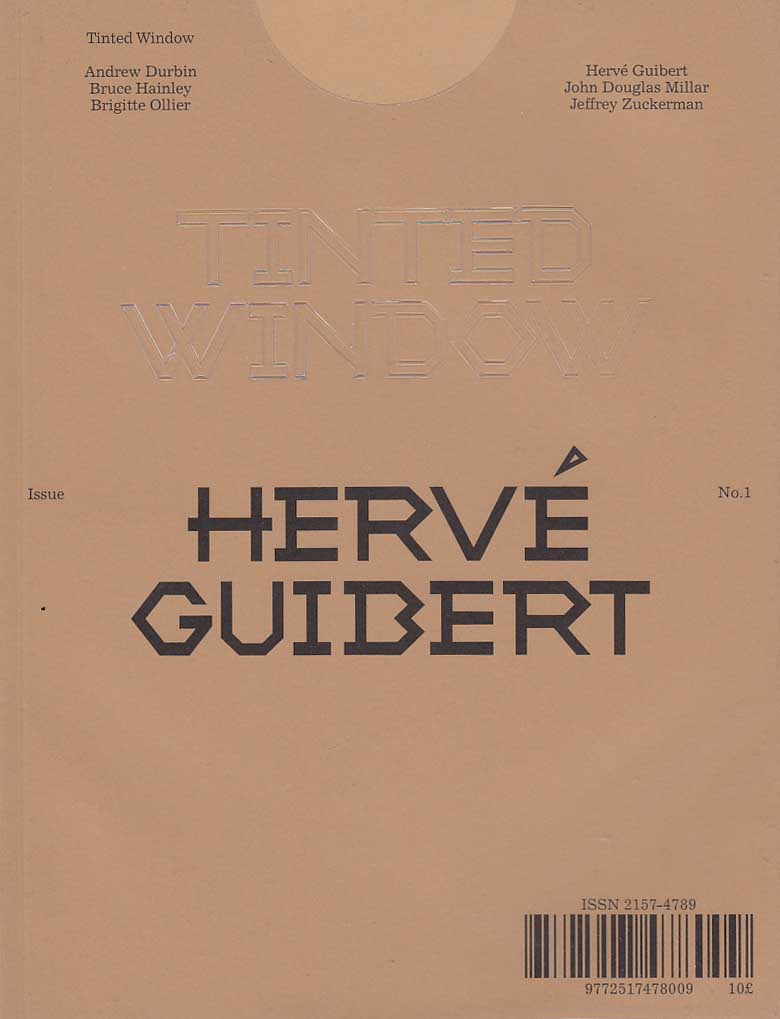
Tinted Window #1 : Hervé Guibert
No.1 explores the life and work of the writer, photographer and filmmaker Hervé Guibert. There is a travelogue to Greece in search of a portrait; reminiscences from those that knew him well or otherwise; first-time English translations of his work; a fine eye for his photographs; writing that deftly traces his last moments. Featuring Andrew Durbin, Louis Fratino, Hervé Guibert, Bruce Hainley, Brigitte Ollier, John Douglas Millar and Jeffrey Zuckerman.

The New Fuck You
Borrowing its name from the notorious '60s Ed Sanders magazine, Fuck You: A Magazine of the Arts, the editors have figured a way to rehone its countercultural and frictional stance with style and aplomb. A unique and provocative anthology of lesbian writing, guaranteed to soothe the soulful and savage the soulless. Includes Adele Bertei, Holly Hughes, Sapphire, Laurie Weeks, and many more.

My Mother Laughs (UK Edition)
In 2013, the filmmaker Chantal Akerman's mother was dying. She flew back from New York to Brussels to care for her, and between dressing her, feeding her and putting her to bed, she wrote. She wrote about her childhood, the escape her mother made from Auschwitz but didn't talk about, the difficulty of loving her girlfriend, C., her fear of what she would do when her mother did die. Among these imperfectly perfect fragments of writing about her life, she placed stills from her films. My Mother Laughs is both the distillation of the themes Akerman pursued throughout her creative life, and a version of the simplest and most complicated love story of all: that between a mother and a daughter.
Translated by Daniella Shreir with an introduction by Eileen Myles and afterword by Frances Morgan.